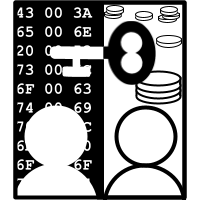This topic involves, for example, the data reconciliation problem, where two or more parties each have a data set, and the sets are very similar (e.g., two parties each have a set of keys, where the two sets have a high degree of overlap, and the use of the Invertible Bloom Lookup Table data structure).
Professor Michael Mitzenmacher - "We are working on the fundamental algorithm and data structure building blocks that will allow more efficient blockchain-related computations, and have applications to other network information problems."
Professor H. T. Kung - "We are working on the concept of AI Model Supply Chains. AI models have become increasingly complex in order to achieve high inference accuracy and efficiency. Training such large models from scratch is often infeasible. Given the amount of data and computing resources required to train these models, and the emerging concerns of data ownership, we envision data and small AI model components as commodities to be bought, traded, and sold. Thus, the creation and deployment of these AI models from data sources to application equates to a supply chain. We propose to research multiple technologies in facilitating these supply chains, including:
- the application of methods such as ensemble learning, federated learning, and compatibility through self-supervision towards creating complex AI models from small model components,
- leveraging on-premise clustering and hashing algorithms and strategies (similar in concept to Federated Learning of Cohorts) to identify and index similar models and model components, and
- blockchain and distributed computing in facilitating secure transactions, increasing the reliability of and trust in supply chains.

